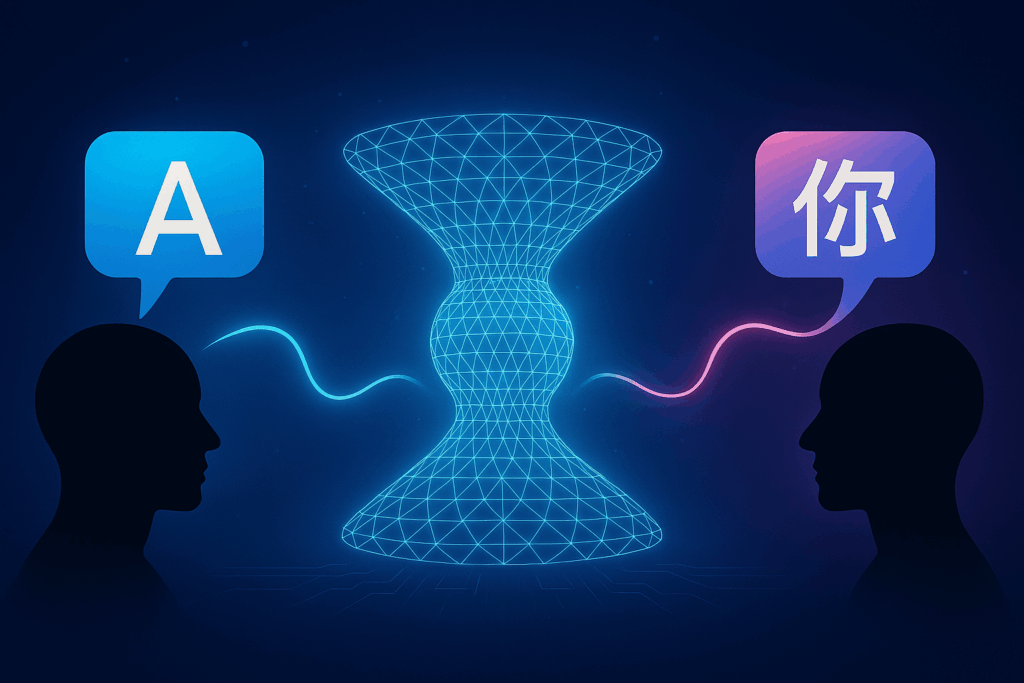
In a parallel world, a groundbreaking leap in linguistic technology has been announced today, with researchers at the International Institute for Quantum Linguistics (IIQL) revealing a quantum computing system capable of providing instantaneous, perfectly accurate translation between any two languages. The development has sparked intense debate about the implications of a truly “universal understanding” and the potential societal shifts it could trigger.
The IIQL team, led by Dr. Anya Sharma, unveiled “Project Babel,” a system leveraging the power of quantum entanglement to process and translate language in real-time. Unlike traditional machine translation systems reliant on statistical analysis and vast datasets, Project Babel uses quantum algorithms to directly map the underlying semantic structures of different languages. This, according to Dr. Sharma, allows for a level of nuance and accuracy previously unimaginable.
“We’re not just translating words,” Dr. Sharma explained at a press conference. “We’re translating meaning. Idioms, cultural references, even subtle shifts in tone – Project Babel captures it all. The speed is instantaneous; the accuracy is perfect.”
Demonstrations showcased the system effortlessly translating complex poetry, nuanced political speeches, and even spontaneous conversations between speakers of vastly different linguistic backgrounds. The fluidity and precision of the translations were met with astonishment by linguists and technology experts present.
However, the breakthrough is not without its critics. Concerns have been raised regarding the potential for cultural homogenization, the erosion of linguistic diversity, and the implications for international relations in a world where communication barriers are completely eliminated.
Professor David Chen, a renowned sociolinguist at the University of Oxford, expressed caution. “While the technological marvel is undeniable, we must carefully consider the societal consequences. Will a universal understanding lead to greater empathy and cooperation, or will it simply accelerate the dominance of certain cultures and languages?”
The debate extends to practical applications. While immediate benefits are clear – enhanced international cooperation, streamlined global commerce, and improved cross-cultural understanding – questions remain about the accessibility of this technology. Will it remain the exclusive domain of governments and large corporations, exacerbating existing power imbalances?
The IIQL insists Project Babel’s source code will be open-sourced, although concerns persist regarding the computational resources required to run the system, potentially limiting its widespread adoption. Furthermore, the ethical considerations surrounding the use of such powerful translation technology in areas like law enforcement and intelligence gathering are currently under scrutiny.
The announcement of Project Babel marks a pivotal moment in the history of communication. Whether it heralds an era of unprecedented global harmony or intensifies existing inequalities remains to be seen. The ensuing discussions, both technical and ethical, promise to shape the future of human interaction in profound ways.